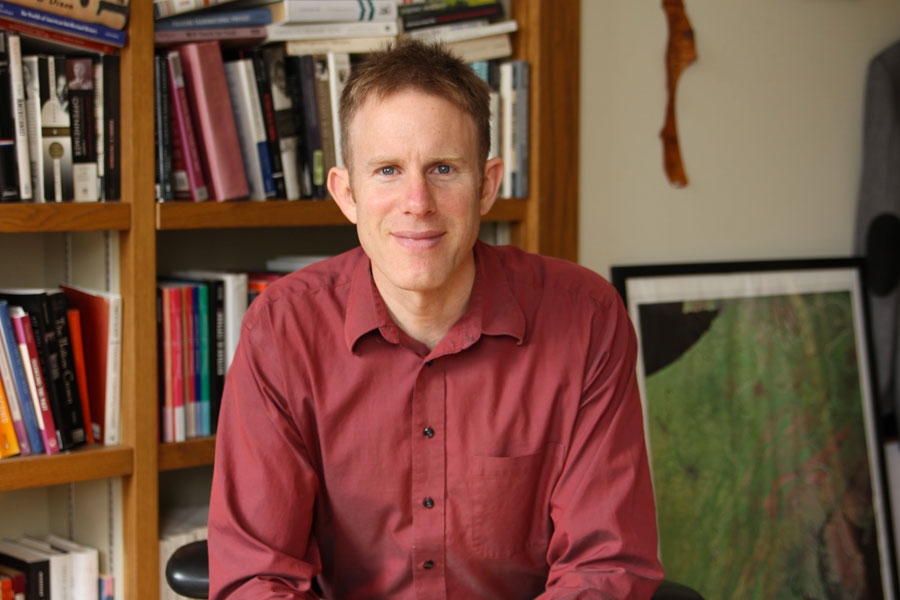
Nico Slate to Head Carnegie Mellon’s History Department
Noted social justice and community activist to succeed Donna Harsch
By By Stefanie Johndrow
Nico Slate has been selected to head Carnegie Mellon University’s Department of History, effective July 1. Slate, a professor of history, succeeds Donna Harsch, who has led the department since 2015.
"Nico will be an excellent successor to an excellent head," said Richard Scheines, Bess Family Dean of the Dietrich College of Humanities and Social Sciences. “Donna Harsch strengthened the department with several strong hires. She also worked with Director of Undergraduate Studies Steven Schlossman to increase enrollments in history for five consecutive years when the national trend was down. I am very grateful for her service.
"Nico is a rare combination of a highly productive scholar and a community activist dedicated to social justice. His work on social movements is known widely, and his work taking his students into the community here and abroad is transformative. I very much look forward to working with him on the academic front, and on the diversity, equity, and inclusion front," Scheines said.
As department head, Slate hopes to strengthen the many interdisciplinary ties between the Department of History and other units throughout the university; to contribute to the diversity and inclusion initiatives underway within Dietrich College; and to support the creativity and initiative of history faculty, graduate students and undergraduates.
"I’m honored to have been chosen to help lead the Department of History and look forward to building on the outstanding work of my predecessor, Donna Harsch, and to supporting my colleagues and our students as we all navigate this strangely historic and profoundly difficult time," Slate said.
The History Department has a strong foundation in research. The faculty's broad-ranging work uses traditional and innovative methods to explore topics from human rights and social injustice to urban, labor and gender histories. The history of science, technology, and the environment is a particular strength of the department. Vigorous research practices are incorporated into the curriculum beginning at the undergraduate level. The department has a vibrant graduate program and three undergraduate programs: Social and Political History; Global Studies; and Ethics, History and Public Policy (administered jointly with the Department of Philosophy).
In his research and teaching, Slate — who joined the CMU faculty in 2009 — focuses on the history of social movements in the United States and India. Slate is the author of four books and is at work on three others: a study of seven survivors of the 1918 influenza pandemic, a memoir on race in Los Angeles after 1965, and a history of truth and power in the American civil rights movement. Slate’s published works include "Gandhi’s Search for the Perfect Diet: Eating with the World in Mind," (University of Washington Press, 2019); "Lord Cornwallis Is Dead: The Struggle for Democracy in the United States and India," (Harvard University Press, 2019); "The Prism of Race: W.E.B. Du Bois, Langston Hughes, Paul Robeson and the Colored World of Cedric Dover," (Palgrave Macmillan, 2014); and "Colored Cosmopolitanism: The Shared Struggle for Freedom in the United States and India" (Harvard University Press, 2012).
Slate is also the founder and director of the Bajaj Rural Development Lab and SocialChange101.org, a free, online educational resource for students of social change. The Bajaj Lab is a joint initiative that links CMU and the Kamalnayan Jamnalal Bajaj Foundation, a large rural development organization with strong ties to Mahatma Gandhi and his legacy. The lab helps document and support the Bajaj Foundation’s efforts to create a model of rural development for India and the world.